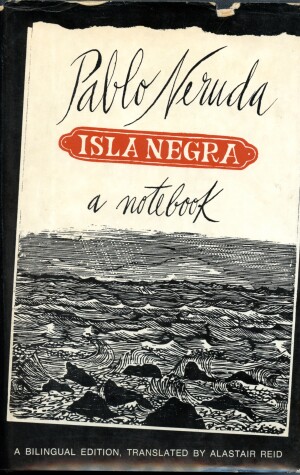Condor Books
4 total works
Neruda's memoirs begin with his childhood spent in the south of Chile and retrace his student days in Santiago. He recalls his sojourn as Chilean consul in Burma, Ceylon and Java, and relives the Spanish Civil War and the murder of Garcia Lorca, an event that turned him into a communist and a poet.
"The greatest poet of the twentieth century - in any language." - Gabriel Garcia Marquez
Neruda wrote the first volume of Residence on Earth in 1933 during his years in the Far East, a time of great loneliness and personal crisis for him. Volume two was inspired by his time in Spain and friendship with Federico Garcia Lorca, while in volume three Neruda finds his role as the monumental poet of the people.
Residence on Earth is Pablo Neruda's greatest achievement, a poetry written to speak of everyday life directly to the reader, where Neruda found his public voice and espoused his political faith that solutions could be found to injustice and misery. Residence on Earth is Neruda's own poetic autobiography, his journey from modernism and surrealism to a poetic realism and commitment that makes him "the people's poet".
Neruda's first great work and the expression of his mature voice, political, engaged and committed where Neruda speaks not only for the victims of repression such as his friend and fellow poet, Frederico Garcia Lorca, but for entire continents. The spontaneity and directness of Neruda's voice finds its great subject in Residence on Earth, as he became "the people's poet" addressing the reader with poems that are realistic and refer to the or-dinary, exalting the basic things of existence while speaking for a politically committed vision of a reformed world.
Neruda wrote the first volume of Residence on Earth in 1933 during his years in the Far East, a time of great loneliness and personal crisis for him. Volume two was inspired by his time in Spain and friendship with Federico Garcia Lorca, while in volume three Neruda finds his role as the monumental poet of the people.
Residence on Earth is Pablo Neruda's greatest achievement, a poetry written to speak of everyday life directly to the reader, where Neruda found his public voice and espoused his political faith that solutions could be found to injustice and misery. Residence on Earth is Neruda's own poetic autobiography, his journey from modernism and surrealism to a poetic realism and commitment that makes him "the people's poet".
Neruda's first great work and the expression of his mature voice, political, engaged and committed where Neruda speaks not only for the victims of repression such as his friend and fellow poet, Frederico Garcia Lorca, but for entire continents. The spontaneity and directness of Neruda's voice finds its great subject in Residence on Earth, as he became "the people's poet" addressing the reader with poems that are realistic and refer to the or-dinary, exalting the basic things of existence while speaking for a politically committed vision of a reformed world.
Few writers are as integrally bound to a place as Pablo Neruda was to the landscape of Isla Negra. From his arrival there in the late '30s to his death in 1973, Isla Negra became a text that unravelled in a series of essential images that are fundamental to an understanding of his mature work.
"The greatest poet of the twentieth century - in any language." - Gabriel Garcia Marquez
Fully Empowered was first published in Spanish in 1962 and was one of Neruda's favourites among his own works, and he specifically asked his finest translator, Alastair Reid, to translate it into English. Neruda loved this collection partly because it grew from the most fruitful period of his own life but also because it was a representative selection of the vast range of his poetry.
The thirty-six poems vary from short, intense lyrics, characteristic Neruda odes, whimsical addresses to friends, and his magnificent mediations on the role of the poet. Within Fully Empowered are many poems among the greatest of Neruda's work, including 'The People', his most celebrated later poem.
In his last years Neruda was preoccupied with the contradictions of human experience, and in this volume he fully explores the theme of the poet as a cluster of different, often contradictory, selves. Anyone familiar with Neruda's work is aware that there are many Nerudas, many distinct poetic styles, and Fully Empowered demonstrates the dazzling diversity, in style and theme, of the most inexhaustible poet of the twentieth century.
Fully Empowered was first published in Spanish in 1962 and was one of Neruda's favourites among his own works, and he specifically asked his finest translator, Alastair Reid, to translate it into English. Neruda loved this collection partly because it grew from the most fruitful period of his own life but also because it was a representative selection of the vast range of his poetry.
The thirty-six poems vary from short, intense lyrics, characteristic Neruda odes, whimsical addresses to friends, and his magnificent mediations on the role of the poet. Within Fully Empowered are many poems among the greatest of Neruda's work, including 'The People', his most celebrated later poem.
In his last years Neruda was preoccupied with the contradictions of human experience, and in this volume he fully explores the theme of the poet as a cluster of different, often contradictory, selves. Anyone familiar with Neruda's work is aware that there are many Nerudas, many distinct poetic styles, and Fully Empowered demonstrates the dazzling diversity, in style and theme, of the most inexhaustible poet of the twentieth century.

